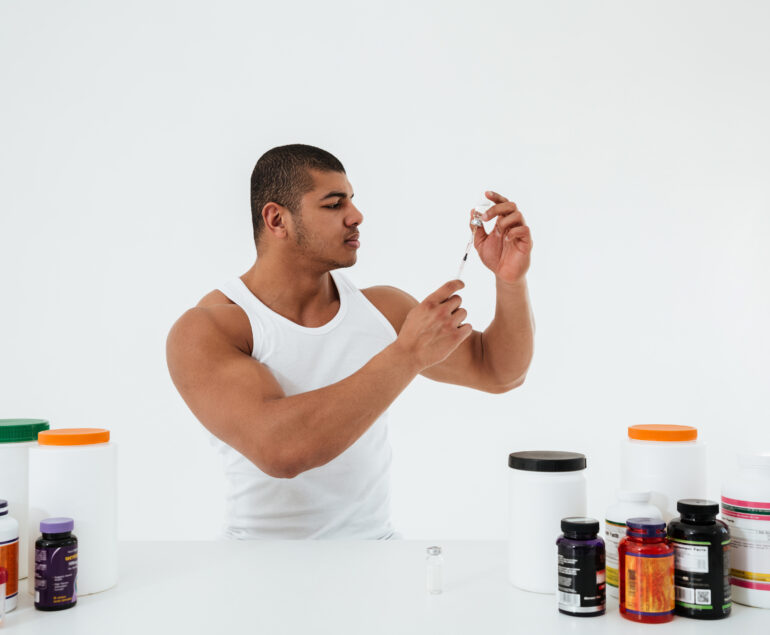Do you need a customized compounding solution containing an active ingredient for your skin conditions? You can consider compounding solutions like Nifedipine ointment compound, a powerful calcium channel blocker known for its effectiveness. Sometimes, the generic options available fail to address unique skin conditions. That’s when pharmacy compounding stands out as the best way to treat skin conditions.
Nifedipine, primarily used for cardiovascular-related conditions, has more to offer than its well-known role in heart health. It works by relaxing blood vessels, improving blood flow, and reducing the heart’s workload. While it’s commonly used to treat hypertension, angina, and other cardiovascular conditions, Nifedipine has proven to be an effective treatment for a variety of skin conditions as well.
When applied topically in compounded formulations, Nifedipine can significantly improve blood circulation to the affected area, promoting faster healing and pain relief. Moreover, its ability to relax muscles and dilate blood vessels makes it an excellent option for treating various dermatological issues that require improved circulation and reduced inflammation. In addition to its use in treating hypertension and angina, Nifedipine has shown promise for addressing skin conditions like Raynaud’s phenomenon, where it can improve blood flow to the extremities. It is also sometimes used off-label for certain esophageal spasms and even preterm labor, showcasing its versatility beyond its primary applications.
Example Comparing Compounding Creams Versus OTC Creams
For example, a case study showed how the Nifedipine ointment compound helped treat anal fissures in diabetic patients. The active ingredient, Nifedipine, is a calcium channel blocker. Nifedipine cream works by relaxing smooth muscles, improving blood flow to the rectal area, and relieving key symptoms such as pain during bowel movements and a burning sensation.
However, you should know that the Nifedipine ointment compound offers the great benefits that patients need. Usually available Nifedipine does not have this important quality and strength as compounding ones for they include other ingredients like Lidocaine. In the next few sections, we’ll explore which other unique skin conditions requiring compounded solutions. This way, you’ll get a fair comparison between compounded medication vs over the counter medications.
6 Unique Skin Conditions that Require Active Ingredient and Special Formulations
Here are some unique skin-related conditions that don’t heal easily from standard medications:
Chronic Eczema
In this condition, dry, itchy, and inflamed patches appear on the skin. Many patients try to self-medicate with mild steroid medicines or moisturizers, but these OTCs aren’t always effective. Compounded medicinal solutions combine these drugs with ceramides or different anti-swelling agents for better patient outcomes.
Psoriasis
This autoimmune condition creates thick, scaly patches on your skin. Some doctors in Canada recommend steroid medicines or Vitamin D analogs. Moreover, combining many active ingredients like coal tar and immune lowering agents can help with relief.
Severe Acne
Many acne conditions are treated with OTC medications. However, severe acne requires pharmacy compounding, especially when your acne is resistant to standard drugs. So, pharmacists can combine ingredients like retinoids and benzoyl peroxide to create a tailored solution for you.
They can also use anti-swelling agents to reduce the redness and irritation associated with acne flare-ups. Just like with the Nifedipine ointment compound, an effective calcium channel blocker, you need personalized treatment.
Rosacea
This chronic swelling skin condition leads to facial redness and pustules. You may not find relief from this skin condition by using standard OTCs. However, pharmacists can recommend topical infection fighting medicine like metronidazole & other anti-inflammatory soothing agents to treat your sensitive skin.
Dark Skin Spots
If you have melasma, a doctor might suggest special bleaching creams. These creams often contain skin lightening ingredients and retinoic acid to help you feel better. We will tailor these creams and ointments to your skin tone and sensitivity.
Hair Loss
Alopecia affects approximately 2% of the Canadian population. Compounded hair loss treatments can mix different ingredients. These may include minoxidil, finasteride, and other active agents. The goal is to create custom formulas. These formulas aim to target specific causes of hair loss and help promote hair regrowth.


Pharmacy Compounding Using Active Ingredient: Cure-All for Skin Conditions
For Canadians tired of treatments that don’t work for their skin, pharmacy compounding might be the best solution. Unlike mass-produced medications, pharmacists create compounded prescriptions specifically to meet unique health needs.
If you have ongoing eczema, severe acne, or other skin problems, pharmacy compounding offers a tailored solution. This approach targets the main cause of your skin issues. Here’s how it works and why it’s a powerful tool for managing complex skin conditions:
1. Personalized Formulations like Nifedipine Cream for Optimal Results
One of the key benefits of pharmacy compounding is that it allows for highly personalized treatments. A compounding pharmacy works closely with your healthcare provider to craft medications tailored to your individual needs.
This means changing the amount of active ingredients like Nifedipine, the calcium channel blocker. You also need to choose the right base, like cream, gel, or ointment. Sometimes, you may combine different ingredients. This helps create a formula that best treats your skin condition.
If you have chronic eczema or psoriasis, your pharmacist can help. They may mix steroid medicines with anti-inflammatory agents or add ceramides to the mixture. Consequently, this can help reduce inflammation and restore your skin’s protective barrier. Such customized treatments can offer more targeted, effective relief than standard off-the-shelf options.
2. Managing Allergies and Sensitivities
Many people can have irritation or allergic reactions from over the counter products and mass market medications. This is often because of preservatives, dyes, or fillers. Pharmacy compounding offers a significant advantage in this area: the ability to create medication free from common allergens like gluten, lactose, or artificial fragrances. If you have sensitive skin, this personalization can significantly reduce the risk of adverse reactions.
For example, when treating rosacea or severe acne, someone can create a special formula with a strong calcium channel blocker. This formula does not include extra chemicals that can cause flare-ups. This gives you a safer and more comfortable treatment option. This can make a huge difference in improving your skin condition without additional irritation.
3. Tailored Dosage Forms for Better Treatment with Active Ingredient
Everyone’s body is different, and what works for one person may not be effective for another. Standard pills or creams aren’t always the right format for your needs. With pharmacy compounding, you can get your treatment in the form that works best for you.
If you need a transdermal patch, topical gel, or ointment, like nifedipine ointment compound, compounding pharmacies can make these forms for you. They can customize them to fit your lifestyle and skin needs.
If you have trouble taking pills or need treatment for your face or joints, a topical ointment or gel can help. It provides direct relief to the affected skin. This format also helps minimize systemic side effects, which can be a concern with oral medications.
4. Combination Therapies for Complex Skin Issues
Some skin conditions are complex, requiring the use of multiple treatments at once and using a different calcium channel blocker than what works for most. Pharmacy compounding significantly enables healthcare providers to combine these therapies into a single, easy-to-apply medication. This makes it simpler to manage conditions that require multiple active ingredients to be effective.
Doctors often use nifedipine ointment to treat anal fissures. They can also make it for skin treatments. For stubborn skin conditions like severe acne or eczema, a compounded treatment can help.
Accordingly, this treatment combines anti-inflammatory agents, infection-fighting medicines, and moisturizers in one cream. It offers complete care for different aspects of the condition at the same time. This reduces the need for multiple products, making treatment more convenient and effective.
5. Treating Resistant Skin Conditions
Certain skin conditions simply don’t respond to standard treatments. For example, severe acne, psoriasis, and chronic eczema may need stronger or more specific medications. You may not find these in regular products. When you’ve exhausted over-the-counter options, pharmacy compounding offers a solution.
A good example is using combined treatments for stubborn acne like nifedipine ointment compound and the like. Pharmacists can mix retinoids, benzoyl peroxide, and other anti-inflammatory agents. This creates a stronger solution that fits your skin’s needs.
So, compounded therapies help treat conditions that regular medications struggle with. They allow your healthcare provider to create a stronger and more effective treatment.
6. Customized Additives to Enhance Treatment like Nifedipine Cream
Pharmacy compounding is not just about changing the concentration of ingredients. It also lets us add special agents that improve the medication’s effectiveness.
For example, a treatment for rosacea or eczema may include extra ingredients like vitamin B3. Researchers recognize vitamin B3 for its anti-inflammatory effects as it can reduce CRP (C-reactive protein) and Tumor necrosis factor (TNF), also called TNF-α, both of which indicate inflammation in the body when found in high levels. It may also include moisturizing acid, which helps hydrate and restore the skin barrier.
These customized additives and a special active ingredient can target specific aspects of your condition that standard medications might overlook. This personalized approach ensures that your treatment plan is as effective as possible for your skin’s unique needs.
7. Access to Discontinued Medications
Occasionally, manufacturers discontinue medications, leaving patients without access to treatments that have worked for them in the past. Fortunately, pharmacy compounding can provide a solution. Compounding pharmacies use active ingredients (APIs) in formulations like nifedipine ointment compound and others to recreate discontinued medications. This ensures that patients can still access the drugs they need.
If you have been using a certain product for severe acne or skin infections and it is no longer available. A compounding pharmacy can often recreate the original formula. This provides ongoing care without the hassle of finding an alternative.
What’s Next After Active Ingredient Containing Compound?
If you are in the Cornwall area, healthcare resources are limited because of staff shortages and few medications. In this situation, pharmacy compounding can provide an important solution for your health. For residents in the Cornwall area, Compounding Wellness is your trusted partner in personalized care.
Our pharmacy team at Long Sault Pharmacy and Pharmasave Ingleside Pharmacy focuses on creating personalized treatments for your specific health needs consequently helping you avoid using generic, one-size-fits-all solutions.
If you need help with skin issues like eczema, psoriasis, or acne, we can help. We also provide special medications for other health problems. We customize our treatments to be effective and designed just for you.
Our compounding pharmacy focuses on personalized care. We provide precision and attention to detail that traditional pharmacies cannot match. Get in touch with Compounding Wellness now as we are here to help you achieve better health outcomes with medications that truly work for you.




